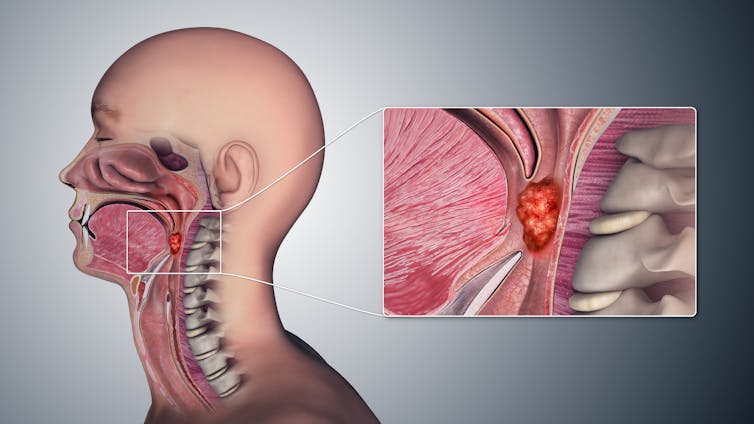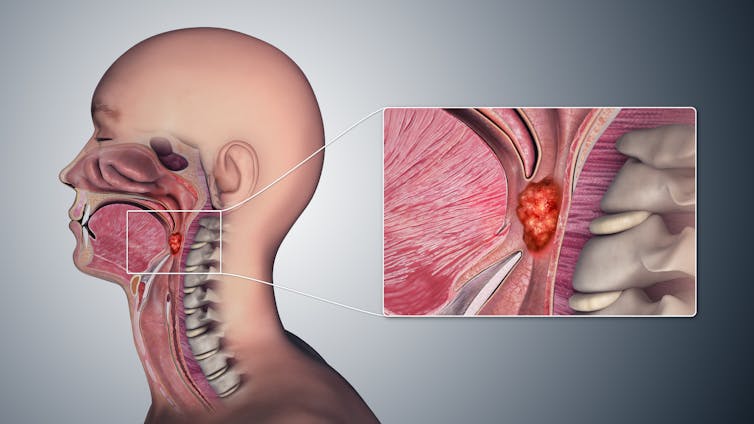By:Kenneth Appiah Bani.
A growing body of evidence suggests that oral sex has become the leading cause of throat cancer, surpassing traditional risk factors such as smoking, alcohol consumption, and poor diet. The alarming rise in oropharyngeal cancer cases, which affect the tonsils and the back of the throat, has been linked to human papillomavirus (HPV) infections, sparking widespread concern among medical experts.
The Role of HPV in Throat Cancer.
HPV, a common group of viruses that affect the skin, is now considered the primary risk factor for oropharyngeal cancer. While most people infected with HPV are able to clear the virus without any issues, a small number of individuals are unable to get rid of the infection, which can lead to cancer. Dr. Hisham Mehanna, a leading expert on the subject, explains that “the prevailing theory is that most of us catch HPV infections and are able to clear them completely. However, a small number of people are not able to get rid of the infection, maybe due to a defect in a particular aspect of their immune system.”
The Link Between Oral Sex and Throat Cancer.
Research has shown that the number of oral sex partners plays a critical role in the likelihood of developing throat cancer. According to Dr. Mehanna, “those with six or more lifetime oral-sex partners are 8.5 times more likely to develop oropharyngeal cancer than those who do not practice oral sex.” This is a staggering statistic, particularly given that approximately 80% of adults in the UK have reported practicing oral sex at some point in their lives.
Alarming Statistics and Preventative Measures.
The NHS reports that around 8,300 people are diagnosed with throat cancer annually in the UK, accounting for about 1 in every 50 cancers. Most cases occur in adults over 55, with only 12.5% affecting individuals younger than 50. While these statistics are alarming, there are steps that can be taken to prevent the spread of HPV and reduce the risk of throat cancer. Vaccination has proven to be a powerful tool in prevention, with more than 80% efficacy. However, HPV vaccine coverage in England remains below optimal levels, with 67.3% of girls and 62.4% of boys completing the recommended two-dose schedule by Year 9.
In Conclusion, the rise of throat cancer cases linked to HPV infections and oral sex is a growing concern that requires immediate attention. While the statistics are alarming, there are steps that can be taken to prevent the spread of HPV and reduce the risk of throat cancer. By raising awareness about the risks associated with HPV and promoting vaccination, we can work towards reducing the number of throat cancer cases and saving lives.
What You Can Do to Reduce Your Risk.
- Get vaccinated against HPV
- Practice safe sex, including using condoms and dental dams
- Limit your number of oral sex partners
- Get regular check-ups with your doctor to monitor for signs of throat cancer
- Stay informed about the risks associated with HPV and throat cancer
By taking these steps, you can reduce your risk of developing throat cancer and stay healthy.







